The Trump administration’s reclassification of Nigeria as a “Country of Particular Concern”.
The Trump administration’s reclassification of Nigeria as a “Country of Particular Concern”.
By Dr. Halim Gençoğlu
Nigeria, as Africa’s most populous and economically largest country, holds strategic importance in U.S. Africa policy. Diplomatic relations established since 1960 between the two countries have long involved interactions in areas such as oil trade, counter-terrorism cooperation, and democracy support. However, in the 2024-2025 period, particularly the Trump administration’s harsh rhetoric toward Nigeria over claims of violence against religious minorities has reshaped relations. In aggregate, the United States is shifting its Nigeria strategy from crisis-management toward “co-creation of regional stability and growth,” leveraging Nigeria’s demographic weight, regional leadership (e.g., ECOWAS) and strategic geography. This reorientation reflects an attempt to integrate U.S. national-security, economic-and-trade and climate agendas within sub-Saharan Africa via its most populous partner. However, the strategy also carries risks, such as over-reliance on military transfers, the sustainability of reform commitments, and Nigerian sovereignty concerns arising from perceived external conditionalities. This essay aims to address the U.S.’s “games in Nigeria”—that is, strategic manipulations and pressure tools—from an academic perspective.
Historical and Geopolitical Context
U.S.-Nigeria relations have been shaped in the post-Cold War era around oil dependency and democracy export. Following Nigeria’s 2023 elections, the Tinubu government has pursued IMF- and World Bank-backed agendas through economic reforms, particularly for removal of fuel subsidies, currency liberalization. These reforms boosted GDP growth to 3.84% in 2024 but drove inflation to 34.8%. The U.S. has aimed, through the Commercial and Investment Partnership (CIP) agreement (July 2024), to remove trade barriers and increase investment in infrastructure and agriculture.
Geopolitically, U.S. interest in Nigeria stems from a desire to counterbalance China’s mineral and infrastructure investments on the continent. Trump’s threats appear to mask this competition with religious freedom rhetoric. Nigeria’s reclassification as a CPC (October 31, 2025), citing violence against Christians, has triggered aid cuts and military intervention plans.
Trump’s Threats and CPC Designation
In late 2025, Trump’s threat to intervene in Nigeria with “guns blazing” marked a turning point in relations. The threat is based on incidents such as the October 14, 2025, attack in Plateau State that killed 13 Christians, shaped by right-wing media and evangelical lobbying. Trump ordered immediate aid cuts and the preparation of military operation plans. This has reshuffled Pentagon priorities, shifting from China- and NATO-focused strategies to religious conflicts in Africa.
The Nigerian government, while welcoming aid, has emphasized sovereignty. Foreign Minister Yusuf Tuggar stated that “state-sponsored religious persecution is impossible” and proposed cooperation against groups like Boko Haram. These threats have also exposed mixed messages within the U.S.; while the defense secretary offered support, officials could not hide their bewilderment. The dynamics of religious violence stem from Nigeria’s multi-ethnic structure. Tensions between the Muslim-majority north and Christian population in the south have deepened due to the Boko Haram insurgency (since 2002) and Fulani herder-farmer conflicts (driven by climate change). Violence affects not only Christians; Muslims and adherents of traditional beliefs are also victims. The U.S. focus simplifies this complexity and fuels conspiracy theories (e.g., regarding mineral reserves).
In sum, Trump’s strategy illustrates how the CPC designation, originally framed as a normative tool for addressing religious-freedom violations, is being leveraged within a broader threat-based foreign-policy posture. The consequences for U.S. credibility, bilateral cooperation and the global human-rights architecture remain uncertain.
Security and Military Cooperation
The U.S. provides extensive support to Nigeria in counterterrorism. Between 2019-2023, $5 million was allocated for the International Military Education and Training (IMET) program; over $8 million in training and equipment was provided under the Trans-Sahara Counterterrorism Partnership (TSCTP). Active agreements under Foreign Military Sales (FMS) total $590 million; sales include 12 A-29 Super Tucano aircraft in 2017 ($497 million) and 12 AH-1Z attack helicopters in 2023 ($997 million), used against Boko Haram and ISIS-West Africa.
However, this cooperation faces criticism over human rights violations. A $346 million arms package in 2025, supported by civilian harm mitigation programs, has been undermined by military intervention threats. The Pentagon’s priority shift highlights the “trilemma” in U.S. Africa policy.
Under the International Religious Freedom Act (IRFA) of 1998, the U.S. Secretary of State may designate foreign states as “Countries of Particular Concern” (CPCs) when they engage in or tolerate “systematic, ongoing, and egregious violations of religious freedom.” In late October 2025, Trump publicly designated Nigeria as a CPC citing large-scale attacks on Christian communities, and simultaneously issued explicit threats, including the suspension of U.S. aid and the potential use of military force if the killings did not cease.
U.S. threats directly affect the Nigerian economy. Aid commitments for FY 2025 have fallen to $550 million; CPC status deters investment and complicates financing tools like Eurobonds. Foreign direct investment reached $6 billion in the first half of 2024, but naira devaluation and reserve fluctuations reveal reform fragility.
U.S. influence continues via the CIP, which targets the digital economy and agriculture to boost trade volume. However, intervention fears risk oil production and projects like the Dangote Refinery. In the long term, these tensions may accelerate Nigeria’s pivot toward China.
Conclusion
Nigeria still maintains strong ties with the U.S. and Western powers in defense, aid and trade. For example, the U.S. has provided Nigeria with counter-terrorism aid and military training. In reality, many African governments engage with multiple external powers as a matter of pragmatism, not purely ideological resistance.
This article examines United States policy toward Nigeria in 2024-2025. In particular, the Donald Trump administration’s reclassification of Nigeria as a “Country of Particular Concern” in the context of religious freedoms, along with threats of potential military intervention, has ushered in a new period of tension in U.S.-Nigeria relations. Findings indicate that U.S. strategic interests are intertwined with religious and humanitarian rhetoric, but these approaches threaten Nigeria’s sovereignty and heighten mutual distrust.
The U.S.’s 2024-2025 Nigeria strategies constitute a complex game, intertwining religious freedoms with security and economic interests. Trump’s threats, fueled by evangelical lobbies and geopolitical competition, make Nigeria’s sovereignty emphasis essential for mutual dialogue. Potential military intervention could repeat failures like Iraq and Afghanistan, increasing regional instability. In the future, restructuring U.S. Africa policy is recommended. This would both prevent humanitarian losses and strengthen strategic partnership. The article analyzes the impact of these developments on security cooperation, economic reforms, and domestic dynamics, while addressing factors such as geopolitical competition and regional instability.
References
U.S. Department of State. (2025). 2025 Investment Climate Statements: Nigeria. https://www.state.gov/reports/2025-investment-climate-statements/nigeria
Túbọ̀sún, K. (2025). “Why Is Trump Suddenly Talking About Invading Nigeria?” Foreign Policy. https://foreignpolicy.com/2025/11/03/trump-nigeria-war-invasion-christians/
Reuters. (2025). “Whiplash: How Trump’s threat to strike Nigeria further reshuffles Pentagon priorities.” https://www.reuters.com/world/africa/whiplash-how-trumps-threat-strike-nigeria-further-reshuffles-pentagon-priorities-2025-11-04/
U.S. Department of State. (2025). U.S. Security Cooperation with Nigeria. https://www.state.gov/u-s-security-cooperation-with-nigeria








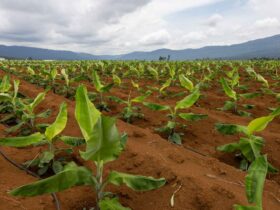
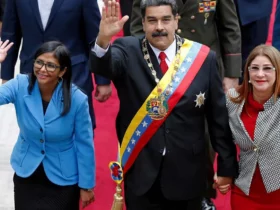
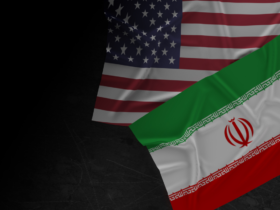
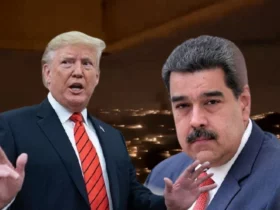
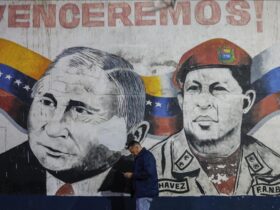
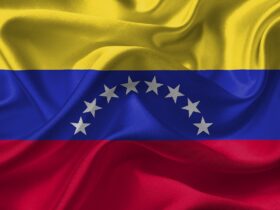

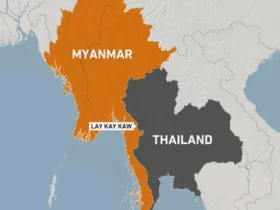

Leave a Reply